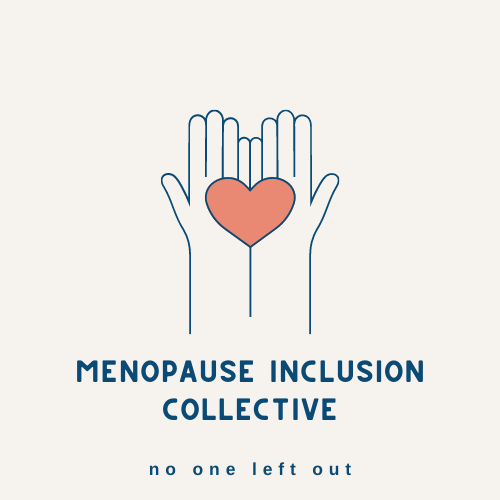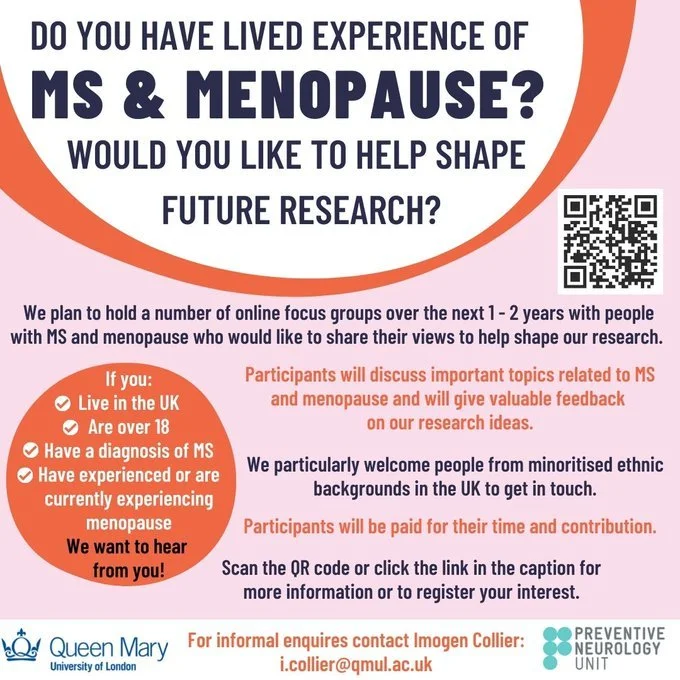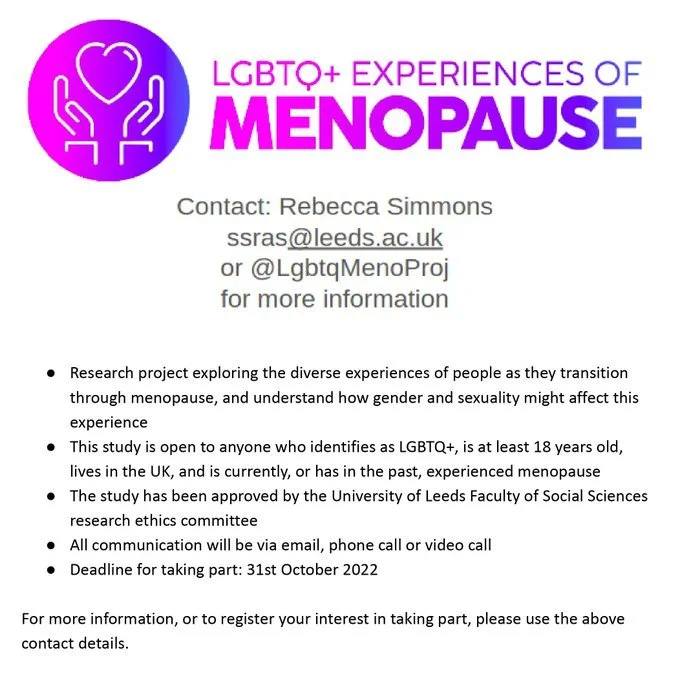
Participation Opportunities
-
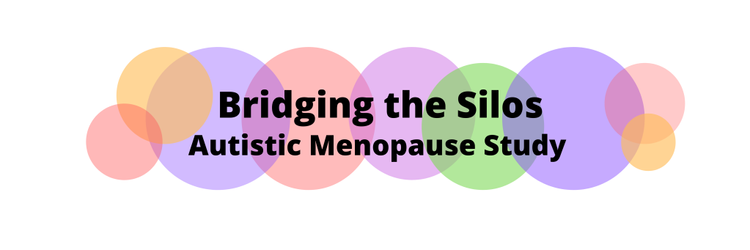
Bridging the Silos, Autistic Menopause Study, Phase 3
About Bridging the Silos
Bridging the Silos: Autistics and Menopause is a research partnership between autistic advocates and academics studying experiences of menopause by autistic people in Canada, the UK, and beyond.
The project asks how autistic people experience menopause and how they can better access information, services, and supports that might help them. While the first two phases of the project focused on experiences in Canada and the UK, Phase 3, an international survey, will include participants from around the world.
Bridging the Silos is funded by a grant from the Social Sciences and Humanities Research Council of Canada (SSHRC). Follow us on Twitter: @Autmenopause
Survey link HERE
-

Testosterone as a treatment for menopause symptoms: What do you want to know?
Added 03/03/23
Hormone replacement therapy (HRT) is an effective way of treating symptoms experienced by women during menopause. There is interest whether testosterone could be used to treat some symptoms associated with menopause.The National Institute of Health Research wants to fund research on the benefits and risks of testosterone in women during the menopause.
We are a team of clinicians, researchers, and women in menopause who are designing a trial to compare testosterone to a placebo (dummy treatment). To make sure that the trial is acceptable to women who have menopausal symptoms, we would like your views. This short survey should take less than 5 minutes to complete. Your responses are confidential.
To complete the survey clink omn the link HERE
-

Menopause and Inclusion Roundtable'Shifting the Dial Towards inclusion in Menopause'
Added 24 / 11/ 22
Register HERE for 02 Dec 2022 12pm - 2pm
Our intention is, together with Marissa Ellis from Diversily, to share thoughts and ideas to be inform a collective White Paper for influencing change.In 2021 the Menopause Inclusion Collective kickstarted talk on themes of inclusion and menopause, shining a light on those experiencesng outside of the frame of being a white, middle class, cis-gendered, educated, wealth and health privileged woman.
However, despite hearing more about making menopause inclusive, equitable, accessible and equal, those of us within marginalised groups and those that recognise that menopause experiences are nuanced and influenced by many factors, might not feel much has changed yet in terms of tangible outcomes.
In this discussion we hope to identify how far we have come and what is yet still to be done to make menopause inclusive across support spaces, services and in resources.
We're hoping to create a discussion fuelled by diverse perpectives, from those with expertise, and those with lived experience.
Thank you and we hope you can join us! Register HERE
-
Research - Queen Mary University London Menopause and MS
Added 24 / 11/22
My name's Imogen and I'm a first year PhD student at QMUL in London researching menopause and multiple sclerosis.I'm right at the beginning of my research and am looking to put together focus groups where people with lived experience of menopause and MS can share their views to shape the direction of the project.I have a particular interest in health inequalities and am aware that people from minoritised ethnic backgrounds and those from sexual and gender minorities are underrepresented in health research (particularly in this field). I'm keen to capture a wide range of views from people people who could experience MS and menopause.
Please feel free to contact me via the email address above if you would like to know any more details. I also have Twitter (@immy_collier) and Instagram (@imogen_collier_research.Would you like to share your views about #MS and #menopause to help inform decisions about our research?
See the poster for details about our upcoming involvement opportunities. Scan the QR code or follow the link to sign up.
-

Imperial College London - Menopause Care Research
Patient and Public Involvement in Menopause Care Research
Are you interested in menopause research?
Your responses will help researchers at Imperial College London to understand what menopause resources are currently use, what the barriers to menopause care are, and your views on the development of a 'menopause tool' that can provide a personalised summary of benefits and risks of different menopause management in order to help with management choices. Share your experiences and help researchers @imperialcollege develop a personalised menopause benefit risk communication tool by filling in the survey :
FOLLOW THIS LINK TO PARTICPATE IN THE SURVEYThank you.
-
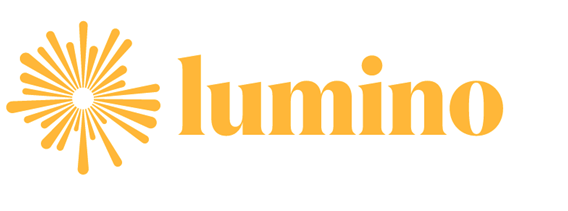
Lumino - Menopause Care
DescWant to help improve menopause care?
We would love to talk to you!
Take part in a 40 minute interview with one of our friendly researchers. Book your slot here: https://tinyurl.com/3h3azh5m
Designed by clinicians, backed by @InnovateUK & @NIHRresearch, incubated @Cambridge_Uni
-

NICE GUIDELINES - STAKEHOLDER REGISTRATION
Menopause Inclusion Collective are registered Stakeholders for the Review of the NICE Guidelines on Menopause, this in in process now, but there are currently opportuinites to get involved in other topics:
• Cardiovascular disease: risk assessment and reduction, including lipid modification (CG181) – Escalation of Therapy for secondary prevention• Venous thromboembolic diseases: diagnosis, management and thrombophilia testing (NG158)
• Oesophago-gastric cancer: assessment and management in adults (NG83)
• Atopic Dermatitis (eczema) in under 12s: diagnosis and management (CG57)
The following NICE guideline(s) are also being checked to see whether they need updating:
• Venous thromboembolism in over 16s: reducing the risk of hospital-acquired deep vein thrombosis or pulmonary embolism (NG89)
If you would like to register your organisation as a stakeholder for any of these topics, please login or complete the registration form on the website.
-

New ’Bridging the Silos’ Autistic Menopause StudyList Item
Call for Creative Submissions on Autistic Experiences of Menopause.
About Bridging the SilosBridging the Silos: Autistics and Menopause is a research partnership between autistic advocates and academics studying experiences of menopause by autistic people in Canada and the UK. Team members include Community Research Associates and academics from Carleton University and Bournemouth University in Canada and the UK. Bridging the Silos is funded by a grant from the Social Sciences and Humanities Research Council of Canada (SSHRC). Follow us on Twitter: @Autmenopause
-

DRAFT Manual on Developing NICE Guidelines
RE: Draft manual on ‘Developing NICE guidelines: the manual’
Sections 1, 4, 6 and 7 of this draft manual and supporting appendices are now out for consultation. This is the first module of consultation for the updated manual.
We hope that your organisation will submit comments on the draft manual sections. It is a valuable opportunity to ensure that the manual for developing NICE guideline recommendations considers issues important to your members. The consultation page has all the information you need to comment.
The consultation will close at 5pm on 1 December 2022.
If you have any queries about this consultation, please contact GuidelinesManualUpdate2022@nice.org.uk
-
University of Leeds - Queer Experiences of Menopause
Rebecca is currently undertaking a PhD in Gender Studies in the school of Sociology and Social Policy at the University of Leeds. @lgbtqmenoproj
Email: ssras@leeds.ac.uk
Deadline 31 Oct 2022 -
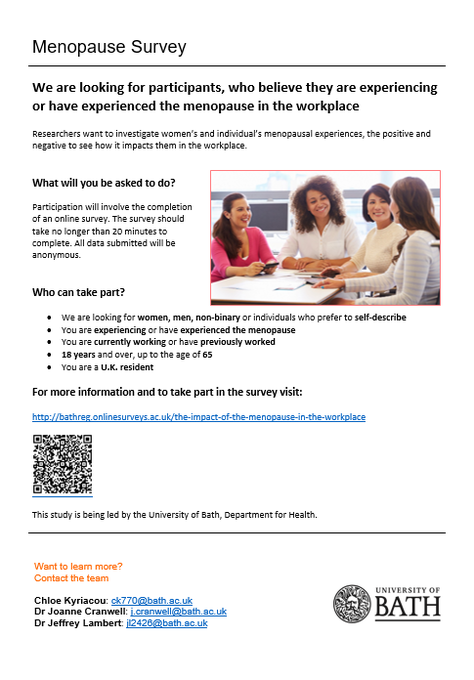
NOW CLOSED University of Bath - The Impact of the Menopause in the Workplace
The symptoms of menopause can be very distressing, and impact the personal, social, and working lives of the people experiencing them. At present, there seems to be a gap in research with regards to people’s experiences of the menopause in the workplace. By conducting this research, it will allow us to identify good practice and identify the gaps that need addressing to help support women, individuals, and employers in the workplace.
Participation involves the completion of an online survey, which should take no longer than 20 minutes to complete. All data will be anonymous. Respondents simply need to be over the age of 18, and up to the age of 65, UK residents, and believe that they are experiencing or have experienced menopausal symptoms in the workplace.
We are at the early stages of recruitment but to reach as many people, and hear as many voices as possible.
